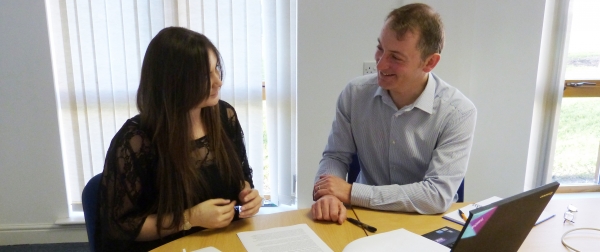Autism in a Real World Context
Joseph Long
I joined Scottish Autism earlier this year as Researcher in Residence after several years in academia, training and working as a social anthropologist. I thought that this blog might be a good place to introduce myself, what I am doing here, and explain why you might find an anthropologist working in an organisation like Scottish Autism.
The popular image of anthropology is probably that of a European in khaki shorts and a pith helmet taking notes while observing life in an exotic tropical village. Ater all, anthropologists have often travelled to distant and foreign cultures to try and understand the different ways in which human beings perceive and organize their worlds. But today you are as likely to find a social anthropologist working in Britain as in a far-off land, and the communities that anthropologists are interested in understanding is as likely to be a school, hospital or shopping centre in Scotland as a herding community in Africa or rainforest dwellers in the Amazon.
What makes anthropology distinctive is its methodology of fieldwork. We base our observations on face-to-face interaction with people. We spend time in the communities that we want to study in order to better understand people’s experiences and social lives. The approach has much to offer to autism services. While neurological research can tell us about the biology of the brain, and psychology about the way we perceive the world and process information, qualitative social research, such as that undertaken by anthropologists, can help us to learn about the daily life experiences of people with autism, their families and support staff. This can help us to understand how autism is experienced in the ‘real world’ context of schools, services and local communities. And it can help us to evaluate and improve what we do as service-providers.
What’s more – we can all be fieldworkers, and in the coming months I will be working with a team of practitioners who will be undertaking research projects in our services. What I hope our projects will do is give our teams a space to reflect on their professional experiences, to share ideas and knowledge, and to gather evidence about how we deal with particular issues and questions in our services. This way we can create evidence-based resources that will improve our practice and help us share our knowledge with the wider autism community.
Although I am new to Scottish Autism, I worked for several years in social care for adults with learning disabilities and autism in direct support and management roles. I am really enjoying the opportunity of combining my academic background with my experiences in social care in order to help Scottish Autism service-users, their families and staff to share their experiences and knowledge.
So I won’t be standing around with a pith helmet on, but I will be working alongside members of the Scottish Autism community, talking about their experiences and finding ways to use those experiences to feed back into the way we provide support. I hope that we can continue to make research and knowledge-sharing a collaborative process that everyone feels part of, and build on some of the excellent work already done within the organisation in this vein.
Categories
- Creative Approaches (6)
- Events (6)
- Fundraising (6)
- Our Services (8)
- Partnership Working (10)
- Research (2)
- Voices from the Spectrum (43)
- About us (3)

